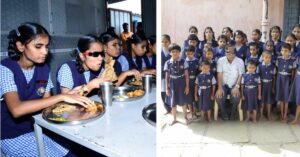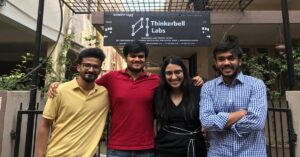World’s First ‘Self-Learning’ Braille Device is Changing the Way Blind Kids Learn to Read, Write
Ed-tech startup Thinkerbell Labs have built the world’s first ‘self-learning’ braille device, which aims to make it easier for children with visual impairments read, write, and type braille. Here’s why their award-winning device could be a gamechanger.
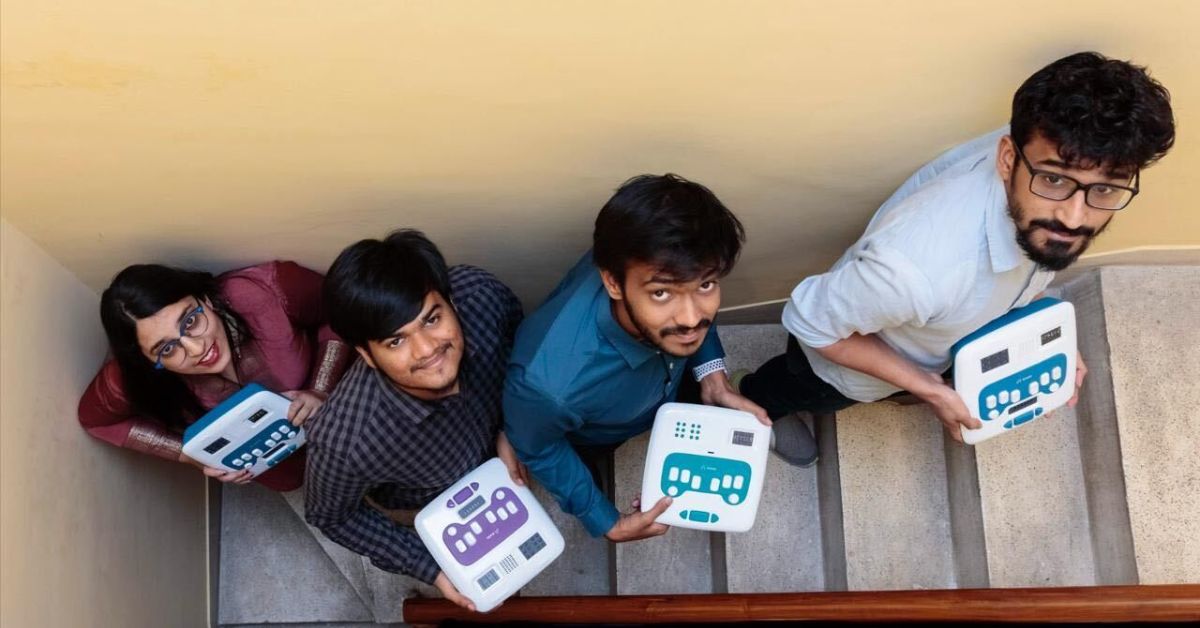
In 2014, when Sanskriti Dawle, Aman Srivastava, Dilip Ramesh, and Saif Shaikh were in the second year of college at BITS Pilani (Goa), they were introduced to a computer called the Raspberry Pi.
As a part of an independent research project in college, they developed a braille alphabet song box on the credit-card sized computer.
“At the time, the Raspberry Pi was only $35, and was used to build cheap computers. We would play around with the device to learn, like how to make lights appear, etc. That was the time we were speaking about education, too, and wondered if we could create a haptic display, that someone can touch. That’s how we built our first prototype, which played the alphabet song, and the letters could be felt on the board,” says Aman.
They secured a grant for this project from their college, through which they visited a blind school and hospital in Hyderabad. The response of students of all ages as well as teachers surprised them. They were enamoured by the product, and couldn’t put it down.
“We visited L V Prasad Eye Institute in Hyderabad, where we were blindfolded and shown things. We spoke to several stakeholders and realised that the problem was that there was a lack of educators and modern methods. Braille education is also very human-intensive, as it requires the complete attention and time of a teacher. We then researched on braille literacy and read up extensively on it,” adds Aman.
For the four friends, who are all in their mid-twenties today, this was their first introduction to a gap in braille literacy in India.
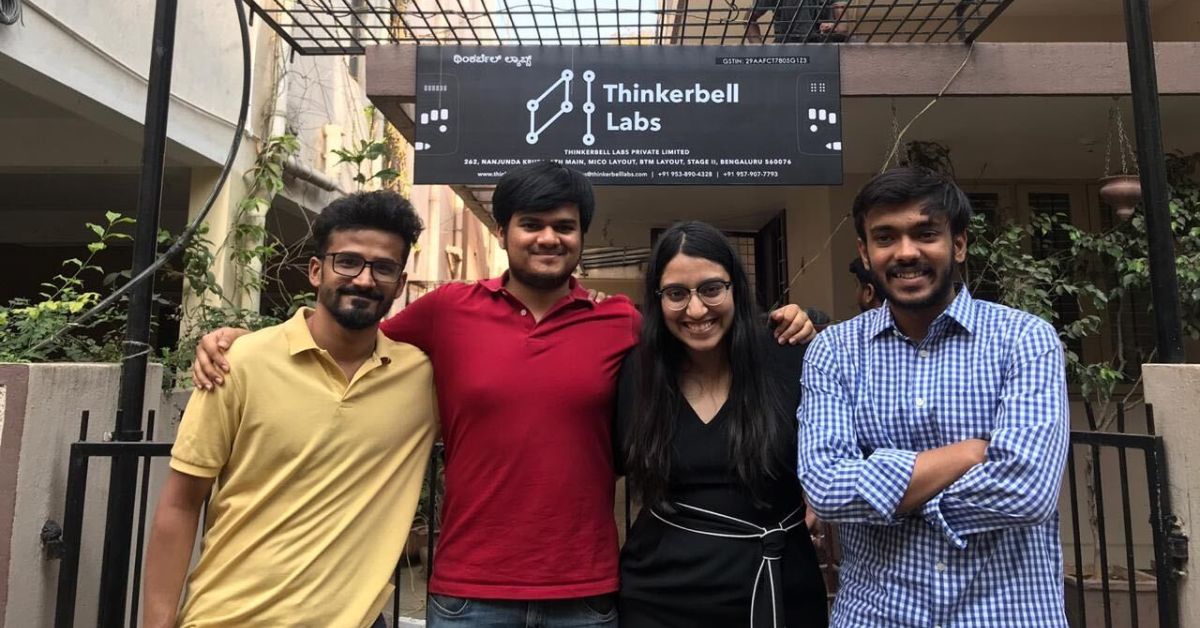
“When we went to the blind school, our entire perspective changed. We couldn’t believe that teenagers were playing with such a simple device. They were interested and engaged in the product,” Sanskriti recalls.
The team then spoke to the students and teachers about the problems they face.
She says visiting that school also threw light on how difficult braille is, and how time-consuming it is for teachers and students. “We learnt that if there are six students in a class with one teacher for an hour, each student sits idle for about 50 minutes, as they learn only when the teacher personally attends to them. As braille is a tactile language, a child only learns when the teacher holds their hand,” she explains.
Making braille easy, like never before
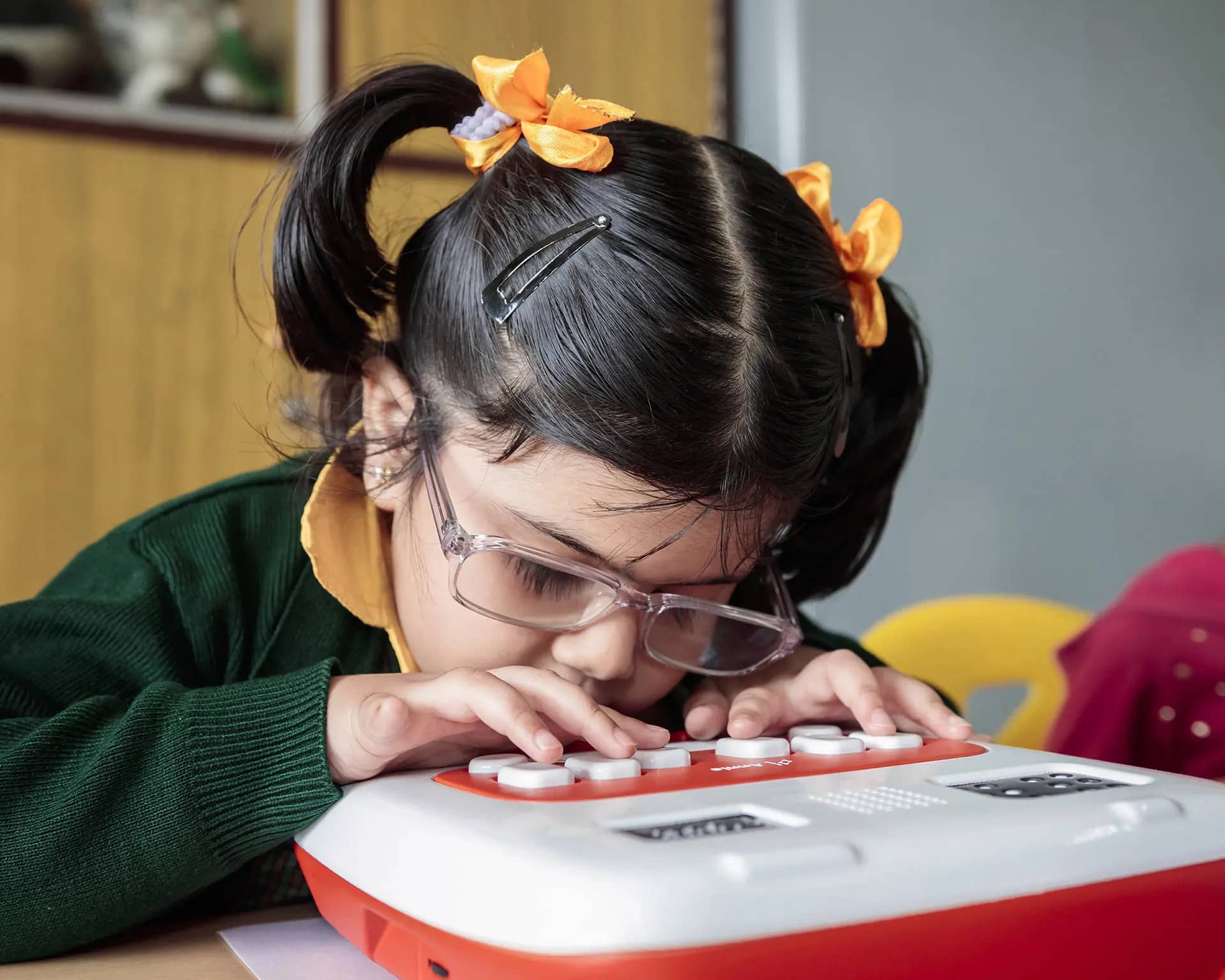
This realisation made the students take notice — there was an urgent need to find a way to make this learning process easier.
“As engineers, all we wanted to do was build a technology that actually matters to somebody. We all had that same passion. We started learning braille ourselves, and it was really difficult. We found it hard as literate adults, and wondered how difficult children must find it,” says Sanskriti.
As per a 2019 report, India is home to 20 per cent — 40 million — of the world’s visually impaired population, among which 1.6 million are children.
Even as countries like the US and UK have low braille literacy rates (at 10 per cent and 4 per cent respectively), India’s number is abysmal, at less than 1 per cent.
Sanskriti notes that it takes a student one full year to learn the basics of braille under constant supervision.
“While we learn using games and blocks in our childhood, blind students didn’t have such options. The teaching method of braille remains the same as it was 100 years ago. It is boring for a young child. And if a teacher is good, the child learns well. If not, it is difficult,” explains Aman.
Armed with this information, the four friends focussed the next two years on finding a viable solution to increase this rate. The result was Thinkerbell Labs, an ed-tech platform launched in 2016, and their flagship device Annie.
Annie is a ‘self-learning’ braille literacy device and works like a personal tutor. It has a braille display, keyboard, and a digital braille slate that comes with audio-guided lessons in regional languages as well as English. It also comes with games to familiarise children with braille.
The founders named the device after Anne Sullivan, who was Hellen Keller’s teacher.
The device comes with an ecosystem called Helios, which enables teachers to track the progress of students and recommend lessons. They can also schedule tests and customise their content.
“Annie teaches children the concept of alphabets and how they form words. It teaches them from scratch and doesn’t assume prior knowledge. It is self-paced, and once you finish one level, you can unlock the next one. Braille itself is very fascinating and takes immense practice to get that tactile sensitivity on your fingertips,” says Sanskriti.
Sanskriti says the founders all pooled in Rs 35 lakh to launch Thinkerbell Labs. “We borrowed money from our families to start the company,” she says. “The four of us, with 13 interns, worked out of a flat. We didn’t even have much money to pay them. But we’ve come a long way from there.”
In 2017, Thinkerbells received the first round of investment from Anand Mahindra, Lets Venture, and Indian Angel Network. They also raised Rs 1.05 crore on Shark Tank India, bringing their total up to Rs 7.7 crore.
Towards inclusive education
The major challenge, says Sanskriti, was the technology itself, as they wanted the product to be a one-stop comprehensive literacy solution.
“Braille writing was a big challenge for us while developing the technology. It took us a lot of time to get the technology right. Based on feedback, we made a completely new design, which went through many changes before we zeroed in on Annie,” she explains.
This year, they received a patent for their technology in India.
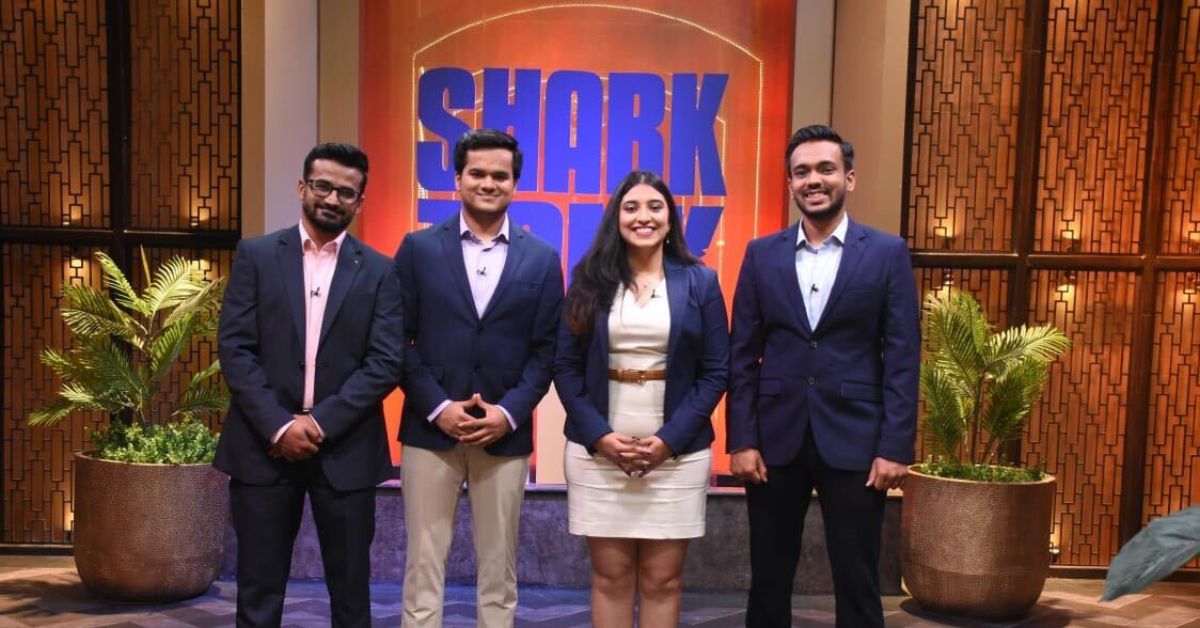
Meanwhile, teachers also say the device has made learning simpler for children.
“Annie is a wonder for the visually impaired. Learning braille can be a very cumbersome task — manual braille comes with a slate and stylus, and it is tedious. Thinkerbell has made it quite interesting. My students, especially the younger ones, are enjoying using this device,” says Sakina Bedi, a teacher at NFBM Jagriti School for Blind Girls, Pune, adding that this way, Annie helps a teacher teach more than one child at a time. It also provides real-time feedback to children.
“I am from Pune and happy to note that it is the first city where every blind school has an Annie smart class,” says Sanskriti.
“The device is suitable for children between the ages of 6 and 14, and remains completely free for the end user. We tie up with district governments and offer Annie Smart classes. We are present in 16 states and have distributed 850 Annies to around 1,500 students so far. We are keen to work with state governments at a policy level,” adds Sanskriti
They have also recently launched in the US in all 50 states, and 150 schools will be receiving their product, which is called Polly in the US, from this academic year.
Thinkerbell won the National Start-up Award 2021 and has been recommended by the NITI Aayog. They were also invited to the Raisina Dialogue, hosted by the Observer Research Foundation (ORF), in partnership with the External Affairs Ministry. The founders also met Prime Minister Narendra Modi during Digital India week.
In India, one of the tenets of the National Education Policy (NEP) 2020 is inclusive education, which includes students with disabilities, like blindness. The policy also aims to recruit special educators in all school complexes to make sure that teaching is more inclusive and cognisant of the needs of children, as per the ORF.
Thinkerbell aims to align with this vision through their Annie smart classes. If you found our stories insightful, informative, or even just enjoyable, we invite you to consider making a voluntary payment to support the work we do at The Better India. Your contribution helps us continue producing quality content that educates, inspires, and drives positive change. Choose one of the payment options below for your contribution- By paying for the stories you value, you directly contribute to sustaining our efforts focused on making a difference in the world. Together, let’s ensure that impactful stories continue to be told and shared, enriching lives and communities alike. Thank you for your support. Here are some frequently asked questions you might find helpful to know why you are contributing?

“A big problem in India is the lack of teachers. Our vision is centred around inclusive education. Our smart classes help children learn easily. We need an upgraded education system to serve children with special needs. Braille literacy is just the beginning for us. We want to be the leader in inclusive education,” says Sanskriti.
| Sector | Education Technology (EdTech) |
| What they do | Thinkerbell Labs aims to achieve 100% braille literacy rates. Their mission is to ensure Annie reaches every child with visual impairment, who needs help to learn how to read, write, and type in braille. |
| Year founded | 2016 |
| Headquarters | Bengaluru |
| Funding raised | Rs 7.7 crores |
| Founders | Sanskriti Dawle, Aman Srivastava, Dilip Ramesh, Saif Shaikh |
Edited by Divya Sethu
Sources
‘Equitable and inclusive vision in the National Educational Policy 2020: A Critique’ by Jibran Khan, Niranjan Sahoo for ORF, Published on 24 August, 2020
‘India home to 20 per cent of world’s visually impaired’ by Naveen S Garewal for The Tribune, Published on 04 March, 2019All Images Courtesy Thinkerbell Labs
This story made me
-
97
-
121
-
89
-
167




